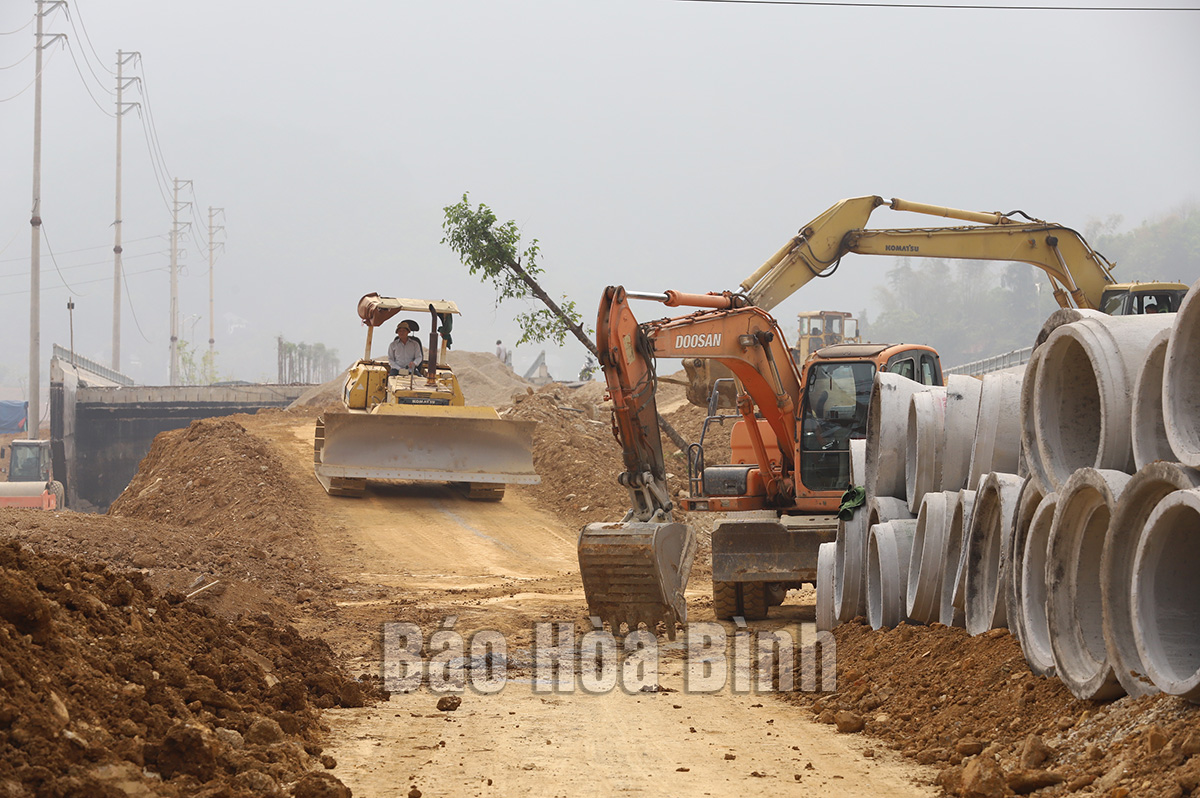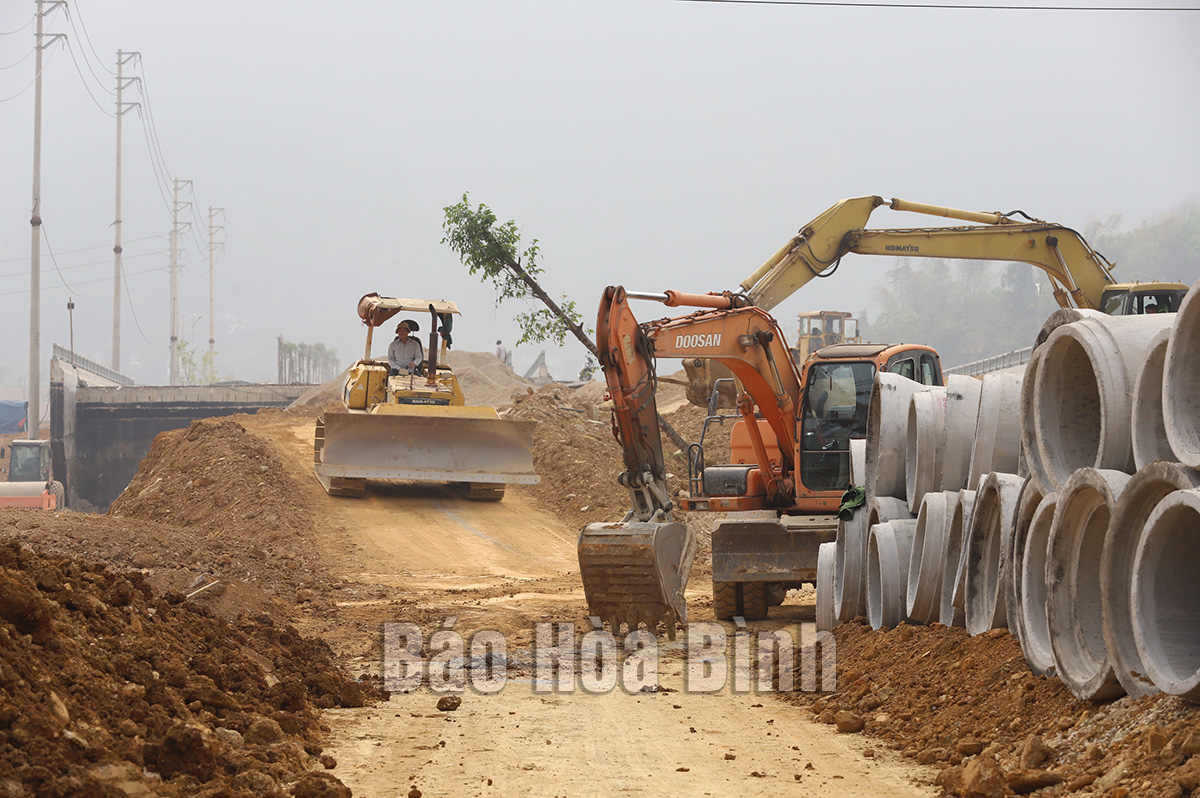
(HBO) - Hoa Binh province will have 21 industrial clusters with a total area of 866,605 hectares under an approved planning scheme. Currently, 16 out of the 21 industrial clusters have been approved by the Provincial People's Committee to set up, covering 683 hectares, with total funding of over 4.86 trillion VND.
Tien Tien Industrial Cluster (Quang Tien commune, Hoa Binh city) is
accelerating construction of technical infrastructure to lure investments.
The combined investment in infrastructure development at the industrial clusters
reached 187 billion VND last year, raising the accumulative amount to date to
about 600 billion VND.
According to the provincial Department of Industry and Trade, there are
currently 34 secondary production and business projects at the industrial clusters
worth some 3.11 trillion VND.
Statistics showed that last year, these clusters generated some 1.7 trillion
VND in industrial production value, and created jobs for 1,300 labourers.
Pham Van Bao, Head of the Industrial Management Division at the provincial
Department of Industry and Trade, pointed to roadblocks in site clearance,
compensation and resettlement.
However, he said, remarkable outcomes have been achieved, as reflected in the
increasing number of secondary projects at the industrial clusters, and
improvements in investment attraction.
To lure more investment projects, especially at the industrial clusters, it is
a must to step up the communications work and review planning schemes of the
industrial clusters in order to make timely adjustments and supplements, the
official continued.
Bao also emphasised the need to better manage the industrial parks to
facilitate investment in infrastructure, production and business, and suggested
mobilising all resources for infrastructure development at the industrial
clusters, with priorities given to environmental pollution handling, and the
communications work./.
According to data from the Hoa Binh Provincial Party Committee, the industrial production index for the first six months of 2025 is estimated to have increased by 20% compared to the same period last year. This marks the highest year-on-year growth rate for this period since 2020.
In the first six months of 2025, Hoa Binh province’s export turnover was estimated at 1.145 billion USD, marking an 18.11% increase compared to the same period in 2024. Import turnover was estimated at $ 804 million, a 17.15% increase, which helped the province maintain a positive trade balance.
The lives of the ethnic minority farmers in Tan Lac district have gradually improved thanks to the new directions in agricultural production. This is a testament to the collective strength fostered through the professional associations and groups implemented by various levels of the district’s Farmers’ Union.
With the motto the "product quality comes first,” after nearly one year of establishment and operation, Muong village’s Clean Food Agricultural and Commercial Cooperative, located in Cau Hamlet, Hung Son Commune (Kim Boi district), has launched reputable, high-quality agricultural products to the market that are well-received by consumers. The products such as Muong village’s pork sausage, salt-cured chicken, and salt-cured pork hocks have gradually carved out a place in the market and they are on the path to obtaining the OCOP certification.
In the past, the phrase "bumper harvest, rock-bottom prices" was a familiar refrain for Vietnamese farmers engaged in fragmented, small-scale agriculture. But today, a new spirit is emerging across rural areas of Hoa Binh province - one of collaboration, organisation, and collective economic models that provide a stable foundation for production.
Maintaining growing area codes and packing facility codes in accordance with regulations is a mandatory requirement for agricultural products to be eligible for export. Recently, the Department of Agriculture and Environment of Hoa Binh province has intensified technical supervision of designated farming areas and packing facilities to safeguard the "green passport" that enables its products to access international markets.



